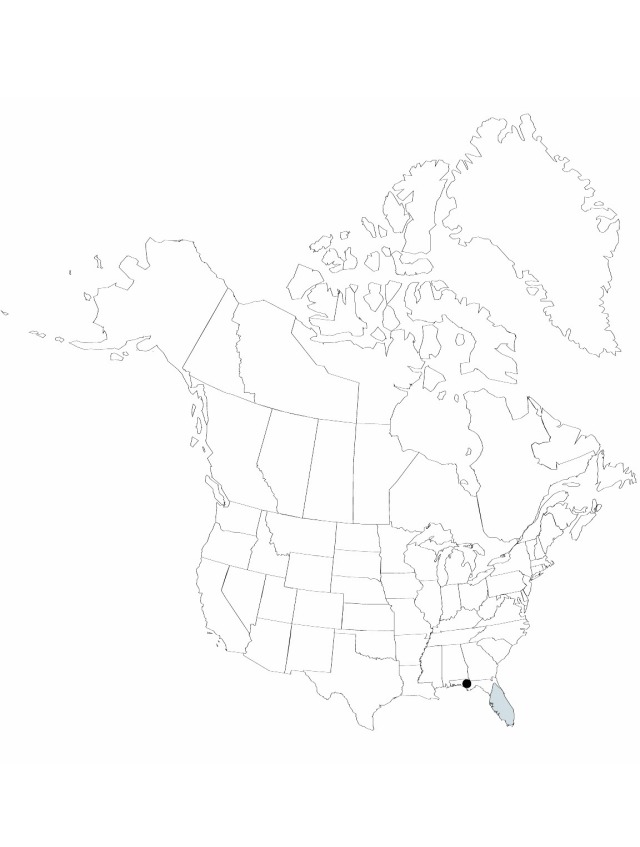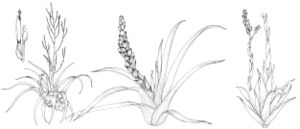Tillandsia utriculata
Sp. Pl. 1: 286. 1753.
Plants single, flowering to 2 m. Stems short. Leaves 20–75, many-ranked, spreading and recurved, not twisted, gray-green (rarely variegated with linear cream stripes), to 1 m × 1.5–3.5 cm, finely appressed-scaly; sheath pale or slightly rust colored, ovate, not inflated, not forming pseudobulb, 6–15 cm wide; blade linear-triangular, leathery, channeled to involute, apex attenuate. Inflorescences: scape conspicuous, erect, 20–50 cm, 6–12 mm diam.; bracts densely imbricate proximally, often lax distally, erect to spreading, like leaves but gradually smaller; sheath of bracts narrowing gradually into blade; spikes very laxly 6–11-flowered, erect to spreading, 2–3-pinnate, linear, 15–40 × 10–15 cm, apex acute; branches 5–40 (rarely simple). Floral bracts widely spaced, erect, green or tinged purple, exposing most of rachis at anthesis, ovate, not keeled, 1.2–2 cm, leathery, venation slight, base visible at anthesis, apex acute, surfaces glabrous. Flowers 10–200, conspicuous; sepals free, elliptic, not keeled, 1.4–2 cm, thin-leathery, veined, apex obtuse, surfaces glabrous; corolla tubular, somewhat bilaterally symmetric, petals erect, slightly twisted, white, ligulate, to 4 cm; stamens exserted; stigma exserted, conduplicate-spiral. Fruits to 4 cm. n = 25 (Puerto Rico, West Indies).
Phenology: Flowering summer.
Habitat: Epiphytic on a variety of hosts, often in bright exposed habitats, usually abundant
Elevation: 0–30 m
Distribution

Fla., Mexico, West Indies, Central America, South America
Discussion
Selected References
None.
